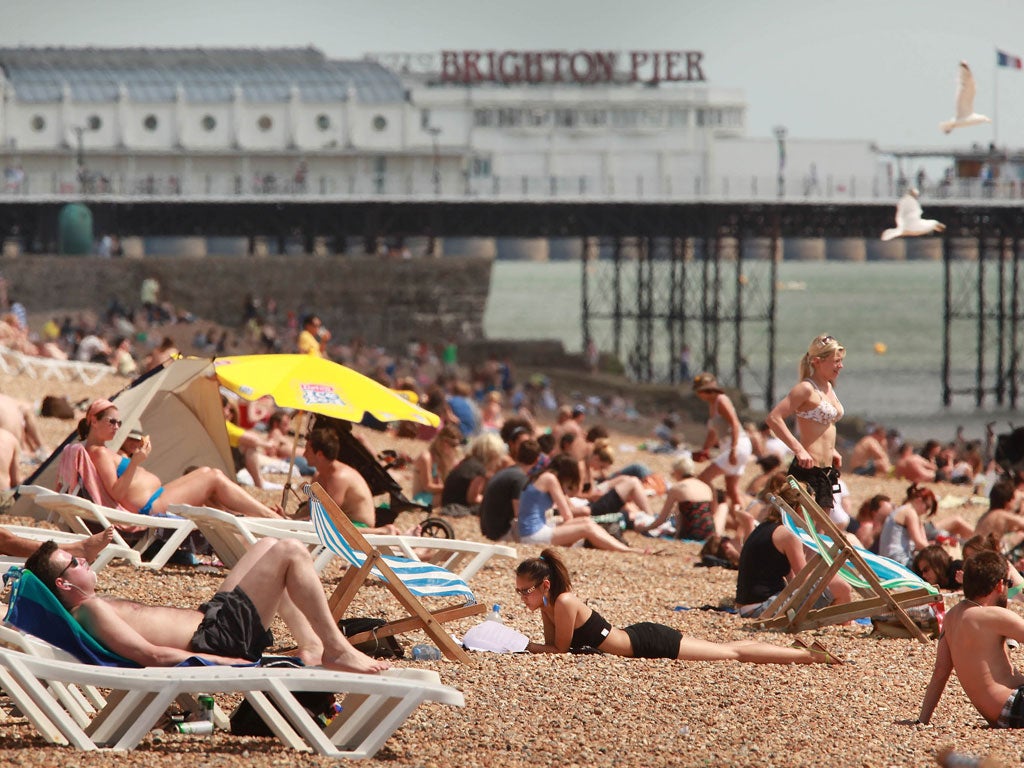Summer's officially here (and so's the sun)

Your support helps us to tell the story
From reproductive rights to climate change to Big Tech, The Independent is on the ground when the story is developing. Whether it's investigating the financials of Elon Musk's pro-Trump PAC or producing our latest documentary, 'The A Word', which shines a light on the American women fighting for reproductive rights, we know how important it is to parse out the facts from the messaging.
At such a critical moment in US history, we need reporters on the ground. Your donation allows us to keep sending journalists to speak to both sides of the story.
The Independent is trusted by Americans across the entire political spectrum. And unlike many other quality news outlets, we choose not to lock Americans out of our reporting and analysis with paywalls. We believe quality journalism should be available to everyone, paid for by those who can afford it.
Your support makes all the difference.British Summer Time kicks off this weekend with the first summery weather of the year, with bright sunshine and temperatures in some places expected to reach 21 or even 22C.
A high pressure system in the North Sea is drawing warm air up from France and northern Continental Europe, and London is expected to be warmer than capitals much farther south such as Madrid, Rome and Athens.
On Thursday temperatures topped 20C for the first time in Britain this year and the figure of 20.1C recorded at Otterbourne, Hampshire, was the hottest March 22 on record, although that figure is still a long way short of the hottest March day ever – which was on 29 March 1968, when the mercury hit 25.6C. However, current temperatures in much of Britain are substantially above the average for the time of year, which is 12C.
Yesterday was so warm that in London there was an air pollution alert, with pollution registering nine on the ten-point scale, meaning people with breathing difficulties were advised to avoid strenuous exercise.
The warmth will mean that the first butterflies will be on the wing, in particular the two very handsome species which many people take as key signs of spring – the orange tip and the brimstone. Both are members of the white family, and three related species, the large and small whites ("cabbage whites") and the green-veined white, will also be flying.
Two more early-emerging species, the holly blue and the speckled wood, will be on the wing, too, as well as three butterfly species which overwinter as adults: the small tortoiseshell, the peacock and the comma. Yesterday the Woodland Trust invited people to look out for the year's first bluebells as the charity tracks the arrival of wildflowers across Britain every spring. Just over 50 sightings have been reported to date, almost twice as many as this time last year, the Trust says, with sightings much further north, too.
The average flowering date for bluebells last year was 12 April. However, with the freezing weather experienced in early February this year, experts are interested in the effects on the flowering of spring species. In partnership with the Forestry Commission, National Trust, Wildlife Trusts and RSPB, the charity, is asking the public to use the VisitWoods website, which hosts the largest online database of bluebell woods, find a nearby wood and keep an eye out for the appearance of bluebells.
Birdwatchers will be looking out for the season's first migrants, in particular the chiffchaff, whose two-note call is a key spring sound, as well as sand martins near water bodies, and wheatears in the uplands. All are now starting to arrive for the breeding season.
Here to stay? Five-day forecast
The warm and sunny weather is likely to remain for five to six says, according to the Met Office, with the best sunshine likely to be in central and western areas, where it will often feel warm. Eastern areas will be cloudier with the cloud extending westward during the night. The summer-like spell is likely to break up with showers by the middle of next week.
Join our commenting forum
Join thought-provoking conversations, follow other Independent readers and see their replies
Comments